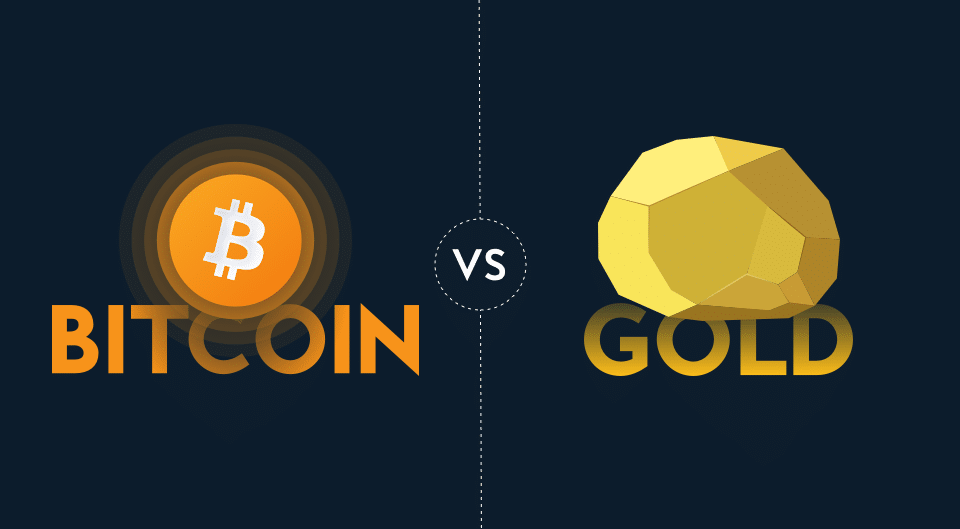Gold vs Bitcoin Investment: Which Is the Better Choice?
For centuries, gold has been a cornerstone of wealth preservation, serving as a hedge against economic downturns and inflation. However, in recent years, Bitcoin has emerged as an alternative asset, offering investors a new store of value that operates outside traditional financial systems. As both assets gain traction among investors, the question remains: Which is the better investment—gold or Bitcoin?
The Case for Bitcoin
Bitcoin, launched in 2009, introduced a decentralized digital asset designed to function as a borderless and censorship-resistant form of money. Initially attracting niche enthusiasts, Bitcoin rapidly gained popularity as an investment vehicle. Early adopters saw significant price appreciation, and institutional investors began exploring Bitcoin as an asset class.
During the COVID-19 pandemic, Bitcoin’s value soared as investors sought alternative stores of value. In April 2021, Bitcoin reached a high of $61,000, peaking at $69,000 in November of the same year. After a prolonged crypto winter, Bitcoin rebounded, hitting an all-time high of over $75,000 in March 2024, fueled by the approval of Bitcoin spot exchange-traded funds (ETFs) in the U.S.
Bitcoin’s appeal lies in its fixed supply of 21 million coins, making it a deflationary asset. Investors view it as “digital gold,” a hedge against inflation and currency devaluation. Its decentralized nature also makes it immune to government control, unlike fiat currencies.
The Case for Gold
Gold has a long history as a store of value, dating back thousands of years. It has consistently served as a safe-haven asset during market downturns. Unlike fiat currencies, gold maintains its intrinsic value and has widespread applications across industries, including electronics, dentistry, and jewelry.
During economic crises, gold has traditionally performed well. The COVID-19 pandemic was no exception—gold surged from below $1,300 in early 2019 to nearly $2,100 in mid-2020. While its price adjusted as economies recovered, gold remained a reliable hedge against uncertainty.
Gold’s stability makes it attractive to risk-averse investors. Unlike Bitcoin, which experiences extreme price fluctuations, gold’s price movements tend to be more predictable. Additionally, gold has an established regulatory framework, making it a well-accepted investment across borders.
Key Differences Between Gold and Bitcoin
Regulation and Security
Gold is heavily regulated, with stringent controls over its trade, ownership, and transportation. Investors typically purchase gold through registered dealers, and holding physical gold requires secure storage.
Bitcoin, while secure due to its decentralized and encrypted nature, operates in a less regulated environment. Some governments have imposed restrictions, and regulatory clarity is still evolving. However, Bitcoin’s digital nature allows for easy cross-border transfers, unlike gold.
Utility and Use Cases
Gold’s utility extends beyond investment—it is used in manufacturing, technology, and jewelry. This diversification of use cases helps gold retain its value.
Bitcoin, on the other hand, is primarily used as a digital asset for investment and transactions. It has gained traction in decentralized finance (DeFi) and as a medium for cross-border payments. However, its adoption as an everyday currency remains limited.
Liquidity
Gold is a highly liquid asset, traded on global markets with established mechanisms for buying and selling. Large transactions can be executed without significant price impact.
Bitcoin’s liquidity depends on the platform and market conditions. While major cryptocurrencies enjoy high liquidity, selling large amounts quickly can impact prices, especially during market downturns. Some exchanges also impose daily withdrawal limits, restricting immediate liquidity.
Volatility
Bitcoin is notorious for its volatility. Its price movements are influenced by market sentiment, regulatory developments, and macroeconomic factors. While volatility presents opportunities for high returns, it also carries significant risk.
Gold, in contrast, has a lower volatility profile. While its price fluctuates based on economic conditions, it does not experience the extreme swings seen in Bitcoin. This makes gold a safer investment for those seeking long-term stability.
Which Is the Better Investment?
The choice between gold and Bitcoin depends on an investor’s risk tolerance, investment horizon, and objectives.
- For stability and long-term wealth preservation, gold remains a proven asset. It is less volatile, widely accepted, and has real-world applications beyond investment.
- For growth potential and diversification, Bitcoin offers a high-risk, high-reward opportunity. Its limited supply and increasing institutional adoption make it a compelling hedge against inflation.
Can Bitcoin Replace Gold?
While Bitcoin has earned the nickname “digital gold,” it is unlikely to replace physical gold entirely. Gold’s history, regulatory acceptance, and industrial applications ensure its continued relevance. However, Bitcoin is carving its own niche as a modern alternative, especially among younger investors and institutions looking to diversify portfolios.
The Bottom Line
Gold and Bitcoin each have their own strengths and weaknesses. While gold remains a reliable hedge in uncertain times, Bitcoin has demonstrated significant upside potential. Investors may find that holding a mix of both assets—combining gold’s stability with Bitcoin’s growth potential—creates a well-balanced portfolio.
Ultimately, the decision to invest in gold or Bitcoin should align with an investor’s risk appetite, financial goals, and market outlook.
🔍 Get more insights into the evolving AI and tech landscape with MINTALPHAA.
🎙️ Stay updated on the latest crypto and tech trends through our Spotify podcast.
